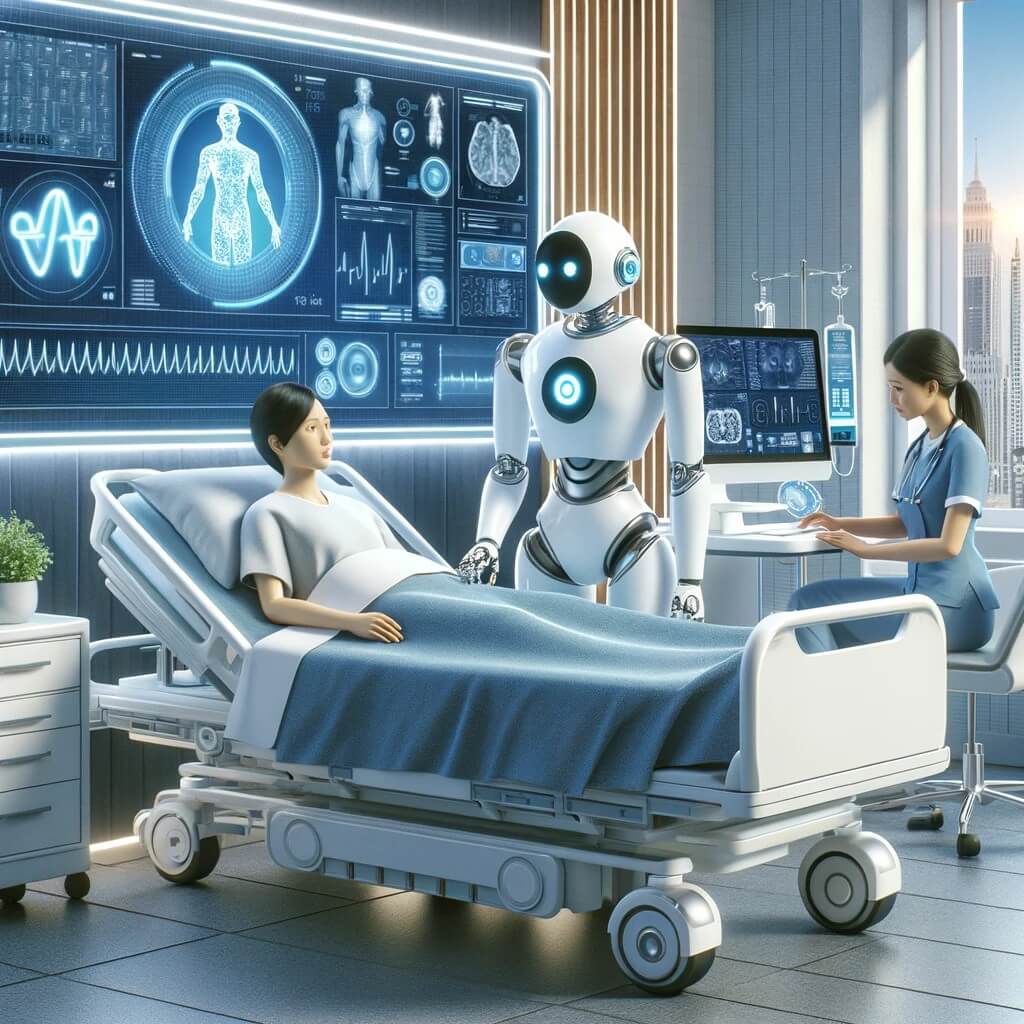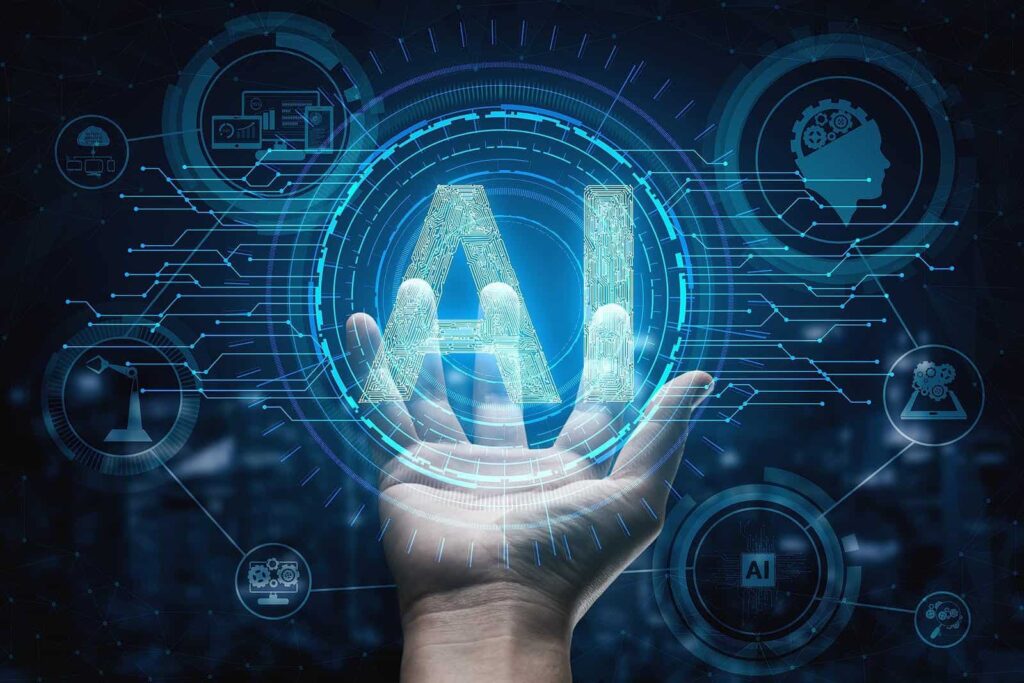Artificial Intelligence (AI) is no longer just a concept confined to science fiction. Today, it’s a powerful force revolutionizing industries, reshaping economies, and transforming our everyday lives. As AI systems continue to evolve, they are increasingly becoming integral to the way we work, live, and solve global challenges. This article explores how AI is shaping the future across different sectors, from healthcare and education to climate change and business, and what lies ahead as this technology continues to advance.

1. AI’s Role in Healthcare
One of the most promising applications of AI is in the healthcare industry. AI-powered systems are now being used to improve medical diagnosis, predict patient outcomes, and personalize treatments based on individual needs. AI algorithms can analyze large volumes of medical data in ways that would take human experts years to accomplish, making healthcare both more efficient and accurate.
For example, AI is being used to detect early signs of diseases such as cancer and Alzheimer’s, often identifying issues earlier than traditional methods. Machine learning models can analyze medical images, lab results, and genetic information to spot patterns and anomalies that human doctors might miss. AI systems are also being used to accelerate drug discovery, cutting down the time it takes to bring new treatments to market, which is critical during global health crises like the COVID-19 pandemic.

In the future, AI is expected to continue its expansion in healthcare, allowing for more precise, faster, and affordable treatment options. This not only improves the quality of patient care but also democratizes healthcare access for people living in remote or underserved regions.
2. AI in Education: A New Learning Frontier
AI is revolutionizing education by making learning more personalized, engaging, and accessible. AI-driven tools and platforms can adapt to the unique learning style and pace of individual students, offering customized tutoring and support where it’s needed most.
For instance, intelligent tutoring systems use AI to track students’ progress in real-time, identify gaps in their knowledge, and adjust teaching methods accordingly. These systems can provide immediate feedback, ensuring that students stay on track and get the help they need. AI is also used to automate administrative tasks like grading, freeing up time for teachers to focus on more meaningful interactions with their students.
Moreover, AI can help students with disabilities by offering tools that make learning more accessible. For example, AI-powered speech recognition software can transcribe lectures for students who are hard of hearing, and real-time language translation tools can assist non-native speakers in understanding course material.

In the future, AI is expected to reshape the traditional classroom setting, allowing for a more flexible, tailored, and student-centered approach to education.
3. AI and Climate Change: A New Ally in the Fight for Sustainability
AI is emerging as a key player in the fight against climate change. By analyzing vast amounts of environmental data, AI systems can identify trends and predict the impacts of climate change with greater accuracy. This enables policymakers and scientists to make more informed decisions and develop more effective strategies for combating environmental issues.
For example, AI is being used to optimize energy consumption in buildings and industries, reducing carbon footprints. Smart grids powered by AI can distribute electricity more efficiently, ensuring that energy is used only when and where it’s needed. AI-driven models are also helping scientists understand complex environmental systems, such as how ecosystems will respond to rising temperatures or how cities can mitigate the effects of natural disasters.
In agriculture, AI is helping farmers optimize crop yields while minimizing water and pesticide use. Machine learning models analyze soil conditions, weather patterns, and other factors to help farmers make decisions that lead to more sustainable farming practices. As climate challenges continue to intensify, AI will be an essential tool in developing solutions that protect both the planet and its inhabitants.


